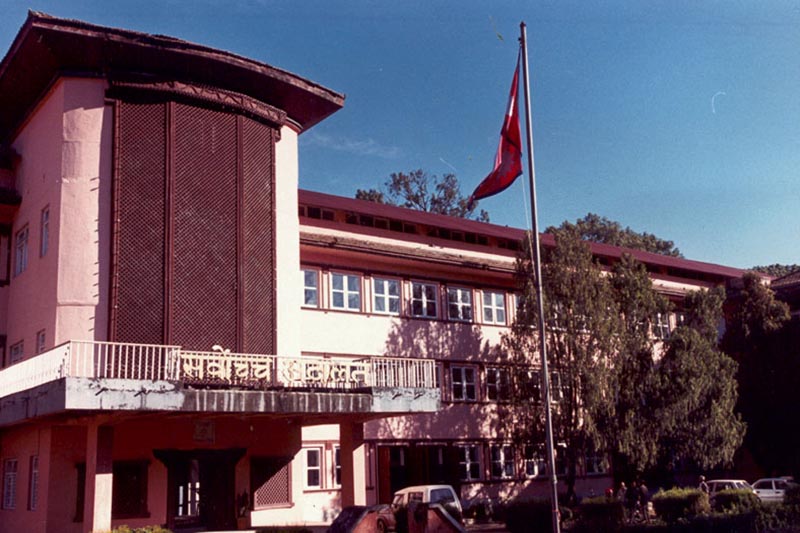Former judges to scrutinise SC judgments
Kathmandu, August 15
Former Judges Forum-Nepal plans to scrutinise some of the recent judgments passed by the Supreme Court with the aim of identifying flaws in those judgments.
FJF-N has formed a five-member committee under Top Bahadur Singh to analyse some of the recent judgments of the apex court to inform the public as to how those judgments contradicted the jurisprudence established in past precedents of the apex court.
Member-Secretary of the committee Shambhu Bahadur Khadka told THT that the committee would start consulting stakeholders — judges, Judicial Council, bar representatives, journalists and lawyers. “We’ll recommend the reasons for the erosion of public’s faith in the judiciary.”
Khadka said the suggestions of the committee would be submitted to the chief justice and if need be, also to the prime minister and political parties. He said the committee would also look into whether the parliamentary hearing of the justices was also a reason behind political influence on the judiciary.
A committee member, Rajendra Kumar Bhandari, said FJF-N took the initiative to suggest measures to enhance the image of the judiciary, as in recent months people felt that political influence was affecting the appointment of SC justices. “I can clearly see some discrepancies in some cases. One example is the Ncell case, which had already been adjudicated by the full bench and yet it was allowed to be revived in the court,” Bhandari said. He added that the FJF-N’s suggestions would help the judiciary to take corrective measures to enhance its image.
Former chief justice Ram Kumar Prasad Sah added that appointment of Supreme Court justices and its verdicts needed to be reviewed to enhance the image of the judiciary.
Sah said some of the judgments passed by the Supreme Court in recent years had contradicted the jurisprudence established in past judgments of the apex court and that needed to be reviewed. “People’s faith in judiciary can be enhanced only by sound judgments of the court. Some of the judgments have led to erosion of the people’s faith in the judiciary,” he said.
Sah added that in recent years, political influence had increased in the judiciary with political parties’ attempting to appoint their favourite candidates as the chief justice. “We notice that at the time of recommendation, dates of birth of the candidates are major criteria to ensure that certain candidate becomes eligible for the chief justice after certain years,” Sah said.
He added that this tendency would undermine the morale of judges who aspire to reach the highest post in the judiciary.
“The Judicial Council can resist politicians’ attempts to influence the judiciary, but I do not see that happening,” he added.
Former justice Krishna Jung Raymajhi said keeping the judiciary free from political influence could alone help enhance the image of judiciary. “We all know that justices are being appointed on the basis of their political leanings. There will be risk of political influence in judgment as long as judges are appointed on the basis of their political leanings,” he added.
He said the structure of the Judicial Council was faulty as three members of the body — Minister of Law, Justice and Parliamentary Affairs, jurist appointed by the prime minister and Nepal Bar Association nominee — represent political ideology. He added that the current structure of the JC should be changed to make appointments more professional.






